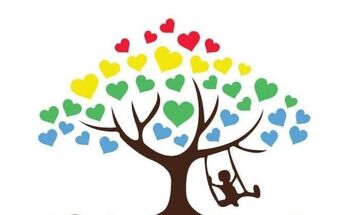Preschool Foundations (Standards)
When thinking about a preschool for your child, you may have many questions and concerns. Is preschool really necessary? Isn't preschool just "play" or "recess"? What kind of curriculum does this preschool have? Does this preschool's curriculum "measure up" to others and will it prepare my child for future schooling?
We know that the first few years of a child's life are especially important. "Children come into this world eager to learn. The first five years of life are a time of enormous growth of linguistic, conceptual, social, emotional, and motor competence." (Eager to Learn, 2000, p.1) It is our opportunity and obligation as the primary adults in our children's lives to help provide childhood settings that support the development of the full range of capacities that will serve as a foundation for future school learning.
Early childhood experts have proven that young children learn best through play. They have also shown that effective, quality programs for young children include:
The Indiana Department of Education has developed a set of "standards", or foundations, for preschool programs. The Foundations are similar to the academic standards created for each grade level. The full extent of a "curriculum" is encompassed by whatever happens in a child's day. According to the Indiana Department of Education's Foundations for Young Children to the Indiana Academic Standards, "Curriculum: Virtually everything that happens in a child's life involves learning, whether explicitly identified as such or not. All activities and processes through which children learn and what adults do to help children achieve this learning including center work, field trips, organized play, sports, and even routine meals are integral parts of any early childhood curriculum. A developmentally appropriate curriculum is based upon three areas: (1) what is known about child development and learning; (2) what is known about strengths, interests, and needs of each individual child in the group; and (3) a knowledge of the social and cultural contexts in which each child lives. Curriculum should always be planned based on the best knowledge of theory, research, and practice about how children learn and develop, with attention given to individual needs and interests in a group in relation to program goals."
Click HERE to view the Indiana Department of Education Preschool Foundations and how EPC supports these Foundations.
We know that the first few years of a child's life are especially important. "Children come into this world eager to learn. The first five years of life are a time of enormous growth of linguistic, conceptual, social, emotional, and motor competence." (Eager to Learn, 2000, p.1) It is our opportunity and obligation as the primary adults in our children's lives to help provide childhood settings that support the development of the full range of capacities that will serve as a foundation for future school learning.
Early childhood experts have proven that young children learn best through play. They have also shown that effective, quality programs for young children include:
- acknowledgment and encouragement of each child's effort
- modeling and demonstrating
- creative challenges that support children in extending their capabilities
- opportunities with specific directions and instructions as well as more "free play"
- an environment organized in a way to pursue educational goals for all children
The Indiana Department of Education has developed a set of "standards", or foundations, for preschool programs. The Foundations are similar to the academic standards created for each grade level. The full extent of a "curriculum" is encompassed by whatever happens in a child's day. According to the Indiana Department of Education's Foundations for Young Children to the Indiana Academic Standards, "Curriculum: Virtually everything that happens in a child's life involves learning, whether explicitly identified as such or not. All activities and processes through which children learn and what adults do to help children achieve this learning including center work, field trips, organized play, sports, and even routine meals are integral parts of any early childhood curriculum. A developmentally appropriate curriculum is based upon three areas: (1) what is known about child development and learning; (2) what is known about strengths, interests, and needs of each individual child in the group; and (3) a knowledge of the social and cultural contexts in which each child lives. Curriculum should always be planned based on the best knowledge of theory, research, and practice about how children learn and develop, with attention given to individual needs and interests in a group in relation to program goals."
Click HERE to view the Indiana Department of Education Preschool Foundations and how EPC supports these Foundations.
